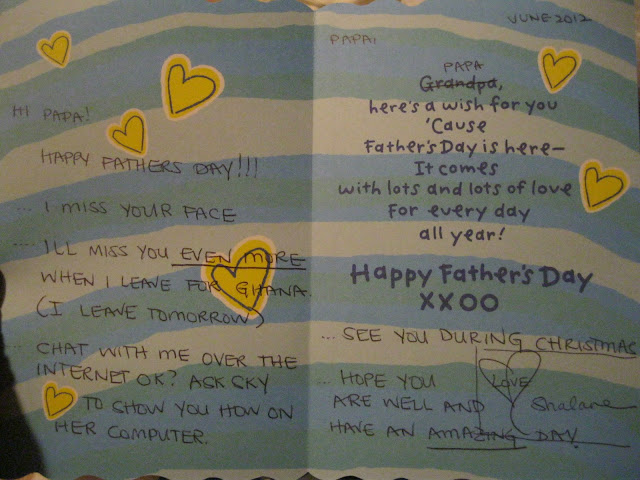I'm writing from Tamale, the only metropolis of Northern Ghana. Although still part of the same country, it strikingly differs from the other major towns of Ghana we've visited thus far - namely Accra and Kumasi. We drove 6 hours through a fierce thunderstorm yesterday and arrived at TICCS (Tamale Institute for Cross-Cultural Studies) last night. Although the rain made walking around Tamale quite squishy, muddy, and messy I'm thankful for the rain because it brings prosperity to the farmers. About 70% of the population in Northern Ghana rely on farming as their major source of income, most of which are rain-fed crops.
This morning we visited an Institute for research and training of agricultural practices. We had the opportunity to visit a local farming community and speak with farmers who grew maize, yam, cassava, and groundnuts (peanuts). The majority of farmers are small shareholder farmers, with the main priority of feeding their family, and then selling their excess on the market. Its important to note that in Northern Ghana they only have one major rainy season whereas the Southern regions experience major and minor rainy seasons. As a result, farmers in the Northern region are more vulnerable in the sense that the only have one chance each year to harvest crops, and correctly. Its amazing to think that it only rains four months per year from about April/May - September/October and their food supply runs out after about four months. The last four months, or the 'lean season', farmers must find other ways to feed their family and cope with the food shortage.
This afternoon we spoke with the Monitoring and Evaluation Regional Officer of the Ministry of Food & Agriculture of Northern Ghana. He explained to us that when families begin to sell guinea fowl or sheep on the street its a sign that farmers are food insecure and are searching for ways to gain extra cash to feed their family. Other methods of coping with food insecurity include migrating to the South or reducing the number of meals consumed per day from three to two, or even one meal per day.
Tomorrow we're going to the central mosque in Tamale and further exploring Islam practices in this community. It'll definitely be the first mosque for me.
I haven't had internet in the past few days so I haven't been able to blog or upload photos. But when I get back to the dorms in Accra I'll have to do a bit of backtracking and posting of old photos. I can't remember the last time I went an entire 7 days without access to internet, but I have to say - disconnecting yourself from the virtual world and immersing yourself in your surroundings has never felt so good.









































